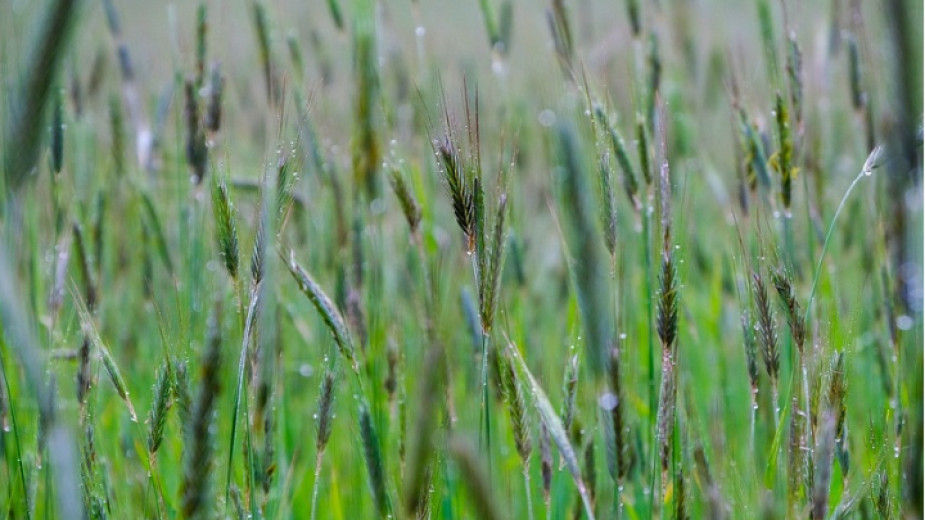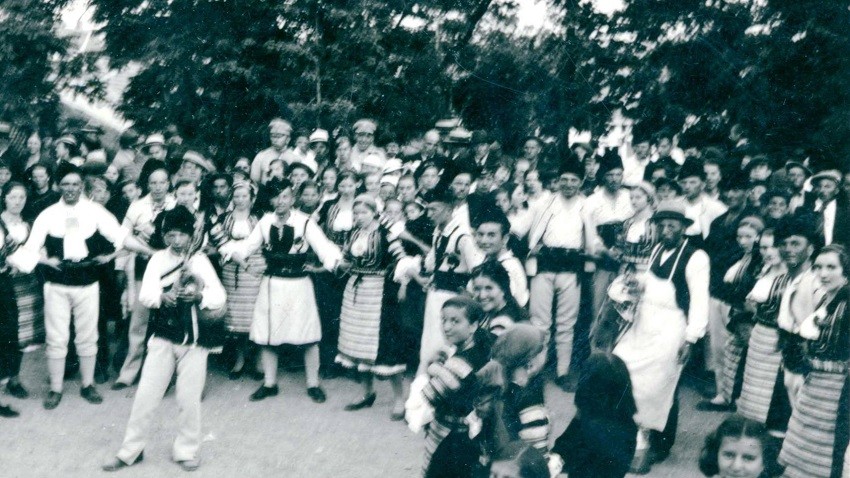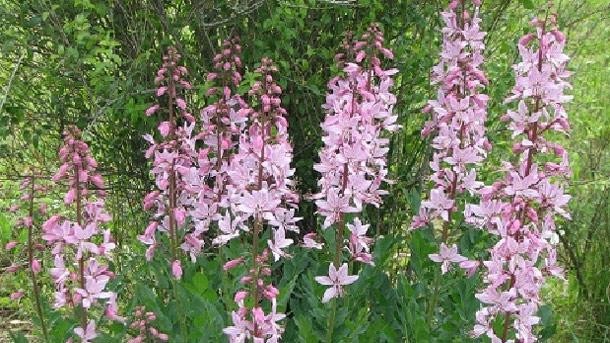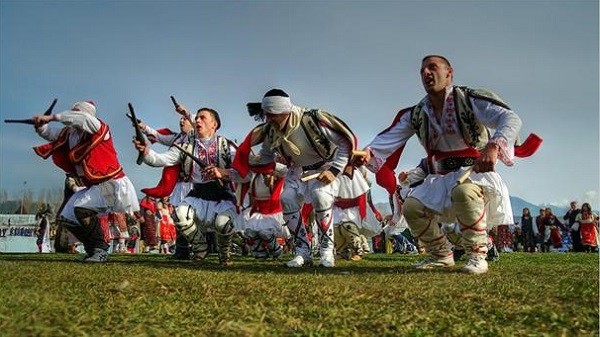
"Spasovden" is the popular name of the Feast of the Ascension, which the Orthodox Church celebrates on the fortieth day after Easter. In Bulgarian folklore traditions, the holiday is associated primarily with the belief that on Thursday before Easter the souls of the dead descend to earth before returning back on Spasovden. That is why one of the several Soul Saturdays is marked on Saturday after Ascension.

On this day, various folk rituals were performed in the past, as they were related to ensuring health, fertility, and protection of the crops from drought and hail. On Spasovden there are also customs focused on marriage.
 Nymphs (samodivi) – mythological creatures that could harm man, but at the same time could save him of incurable diseases are said to come out on the holiday, preparing for Nymphs' Sunday (Samodivska Nedelya), when they will "sow" their dew over the fields. They do this on Spasovden decorated with burning bush, which is their favourite herb and is picked in the night before the holiday. It is believed that mermaids pick only the tip of the medicinal plant.To this day, in some places in Bulgaria people roll in the morning dew before sunrise, believing this would bring them health.
Nymphs (samodivi) – mythological creatures that could harm man, but at the same time could save him of incurable diseases are said to come out on the holiday, preparing for Nymphs' Sunday (Samodivska Nedelya), when they will "sow" their dew over the fields. They do this on Spasovden decorated with burning bush, which is their favourite herb and is picked in the night before the holiday. It is believed that mermaids pick only the tip of the medicinal plant.To this day, in some places in Bulgaria people roll in the morning dew before sunrise, believing this would bring them health.
 During the week, called “Rusalska”, the “Rusaliy” also perform their folk rituals. These are male groups always with an odd number of participants and their guide is called “vatafin.” The decorate their hats with all kinds of herbs and carry sticks of hazel, maple or dogwood – medicinal trees with magical power. The groups go around villages all week and treat people from diseases caused by mermaids or "samodiva". They do it with a special ritual dance around the patient. Arranged in a circle, the group dances to music accompanied by a gradual acceleration of the tempo, before reaching an ecstatic state. When the climax is reached, the vatafin breaks a pot of healing liquid and the patient gets up and runs away. His or her place is taken by one of the members of the group and so the disease is banished. After completing the healing rituals, the boys visit the church to purify themselves and then return to their normal way of life. These rituals are considered to be a legacy of ancient times.
During the week, called “Rusalska”, the “Rusaliy” also perform their folk rituals. These are male groups always with an odd number of participants and their guide is called “vatafin.” The decorate their hats with all kinds of herbs and carry sticks of hazel, maple or dogwood – medicinal trees with magical power. The groups go around villages all week and treat people from diseases caused by mermaids or "samodiva". They do it with a special ritual dance around the patient. Arranged in a circle, the group dances to music accompanied by a gradual acceleration of the tempo, before reaching an ecstatic state. When the climax is reached, the vatafin breaks a pot of healing liquid and the patient gets up and runs away. His or her place is taken by one of the members of the group and so the disease is banished. After completing the healing rituals, the boys visit the church to purify themselves and then return to their normal way of life. These rituals are considered to be a legacy of ancient times.
On the Feast of Ascension everyone who bears the name Spas, Spaska, Spasimira, Sotir and others celebrate.
More about the traditions of the holiday and the folk songs dedicated to this day can be found HERE.
English: Alexander Markov
Photos: BNR/archive and @DrzavenArhivPernikThe number of Bulgarian folk dance ensembles abroad is growing and, alongside Bulgarian schools, they are among the key centres that unite compatriots overseas and preserve their connection to their roots. Recently, some of these dance troupes returned..
A Bulgarian amateur folk choir based in Italy has returned to Bulgaria for its debut performance before a home audience. Most members of the choir, named Beli Rozi (White Roses) , have lived in the southern Italian city of Pescara for over a decade...
Elation, happy faces, smiling people, beautiful Bulgarian songs and dances – that was how the first festival of Bulgarian folklore ensembles abroad got started last night in Arbanasi village near Veliko Tarnovo. The idea for the festival belongs..

+359 2 9336 661
